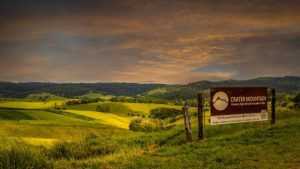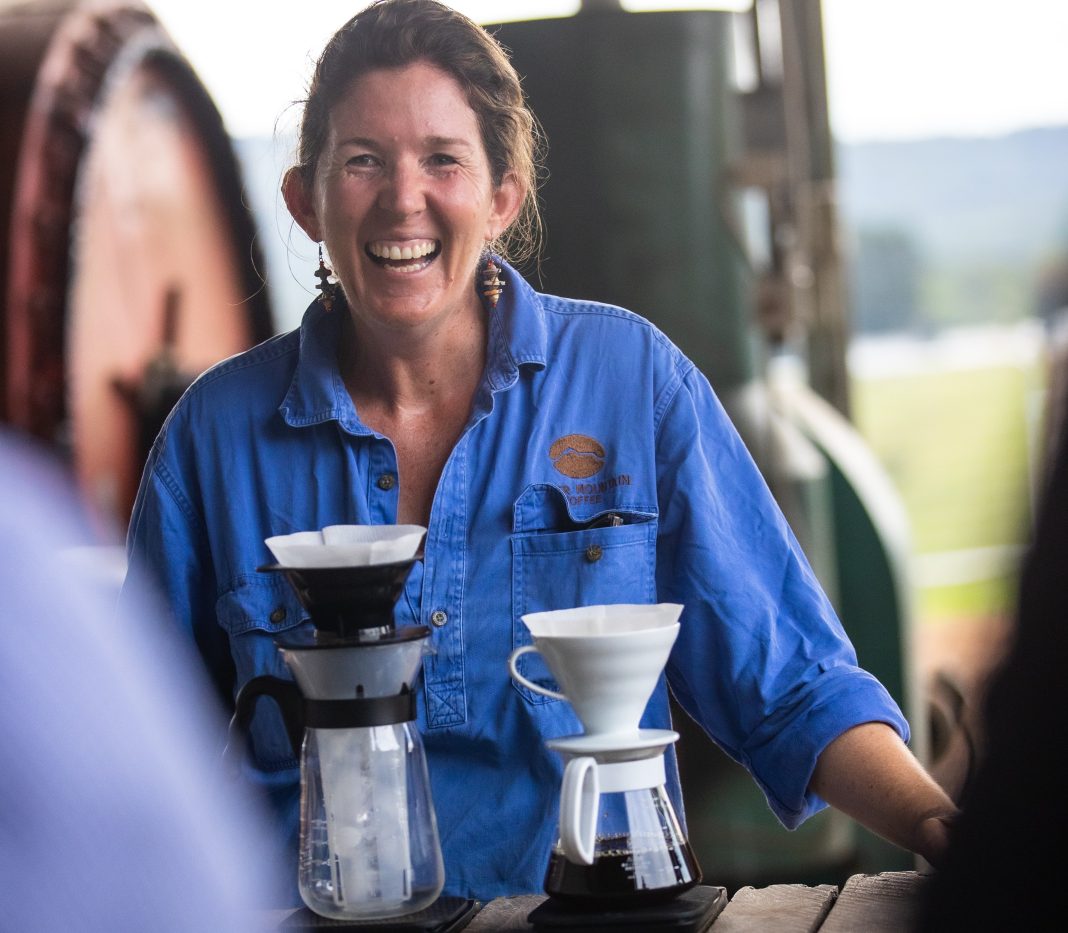MILAN – Australia will hold coffee: not only specialty coffee, alternative extractions to espresso, and world champions have contributed to making this country one of the top expressions of this beverage, but also the farmers. Well yes, maybe not everyone knows this, but in Australia they don’t just drink and serve coffee, they also grow it. We interviewed one of them, Lucy from Crater Mountain.
Crater Mountain, Lucy’s adventure: “In 2017 we converted the first paddocks from cattle pasture to coffee seedlings”
What took you from mining career to coffee entrepreneurship (from farmer to roaster)? How did you train for these new professions?
“I was raised on a farm, but it was cattle and avocados. I loved working in the mining industry but really wanted to do something in agriculture and create a new industry for the region where I grew up. My dad had spent a long time working in tropical highlands around the world and thought that coffee would do very well where we live. Anne Cooper (Roastress Coops) taught me how to roast but I have collaborated with many smart people in the industry to gain as much knowledge as I can including Vitaliy Krutikov, Hugh Kelly and the amazing local farmers I know.
How many of you are working in your company?
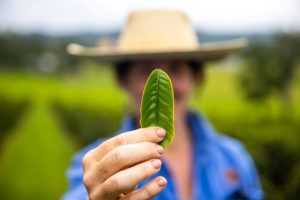
“Just me full time. My husband, James Masterman, is awesome at all the technical aspects, but he has a day job to pay the bills. He has written software to help me manage watering, fertilising, and managing the processing. Then we have 2 local casual workers that help when needed.”
How is your coffee at Crater Mountain?
“We are growing around 10 different varieties but mainly focussed on Bourbon and Catuai. Average farm elevations are 1040m. We are a very small producer, so we concentrate on making really interesting specialty lots. My favourite process is inoculated honey but we make some amazing fermented naturals dried over 25 days too.”
You choose to use low till farming practices: how does it work for the soil and for the coffee plant?
“Yes. We work the soil as little as possible and use organic matter to look after our soil microbes. Our trees are on the slopes of an extinct volcano, so we have to be careful not to expose them too much and let the acidity levels get to high.
How much does your basalt soil affect your green coffee? What aromatic characteristics does it give it?
“We think the combination of our basalt soils, slopes and high cloud cover give the coffee very dense beans and lively characteristics. We chase red and dried fruit characteristics.”
What are you doing in terms of sustainability in your field?
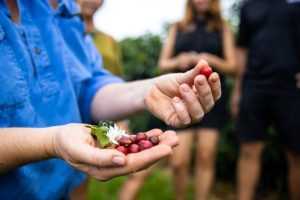
“Everything we do is about sustainability. From solar pumping to gravity-fed irrigation systems and minimising the use of chemicals. We use, adapt and re-use just about everything on the farm.”
But you not only grow the green, you also roast it: can you tell us more about these two key steps and how you manage them on the farm itself?
“Coffee processing is my favourite step in the coffee value chain. I love experimenting with new yeasts and bacteria to highlight certain characteristics of the coffee. Roasting is where is all comes together and sharing the ‘fruit’ of our labour makes it all worthwhile. My goal with roasting is to keep it as light as possible so that our unique terroir and processing methods are maintained in the cup.”
Does your coffee have a direct market mainly for Australian domestic consumption or do you also manage to export?
“We are still growing so I have not had the yield to export much. Tom Balerin from France used our coffee for his National competition this year and the World Barista championships last year. We are working on a few key relationships including him and other Speciality Roasters in Europe but 90% of our coffee is roasted and sold directly to Australian consumers.”
Are there many of you growing coffee in Australia and also roasting it?
“Not many. Only 0.5% of coffee drunk in Australia is from Australian coffee farmers! We have a very strong roasting and consumption sector though.”
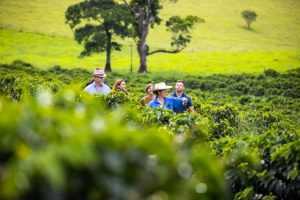
How extensive is your plantation? Do you also have other cultures?
“We only have 30000 trees but are expanding every year as we learn more about growing and processing needs.”
As growers in Australia, do you feel you are being treated unfairly compared to other players in the coffee supply chain? Or do you live under better conditions than your colleagues in other countries of origin?
“Our coffee is much more expensive to make as the cost of labour in Australia is so high. Australians are blessed with good laws and worker conditions and my heart breaks for those international communities that are paid unfair prices for their coffees. Consumers need to realise how much work goes into good coffees and be prepared to pay accordingly.”
What are the next steps for Crater Mountain considering the new market challenges (do you also have a problem with dealing with climate change, plant diseases).
“Plant. More. Coffee. Continue to innovate with unique processing methods and make more amazing coffee.”
